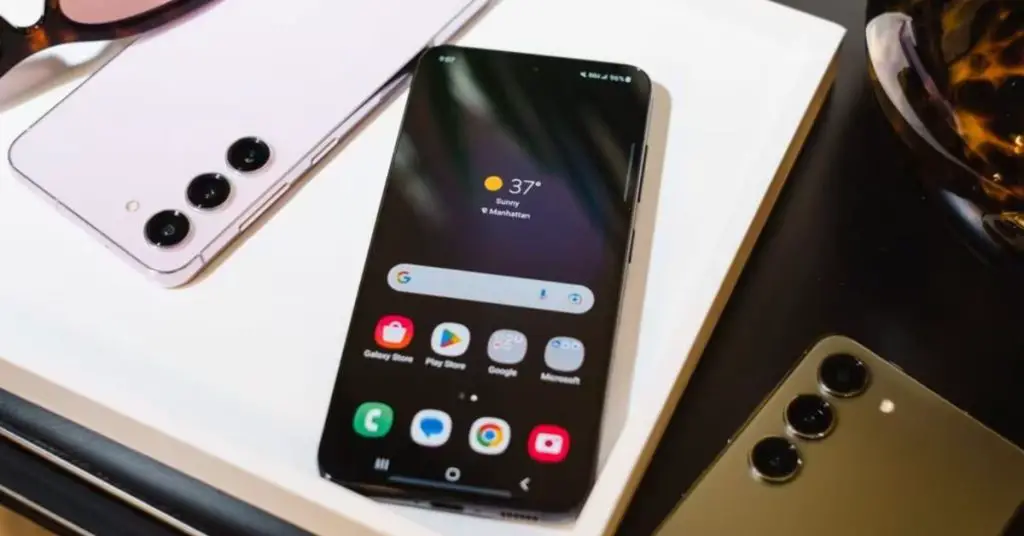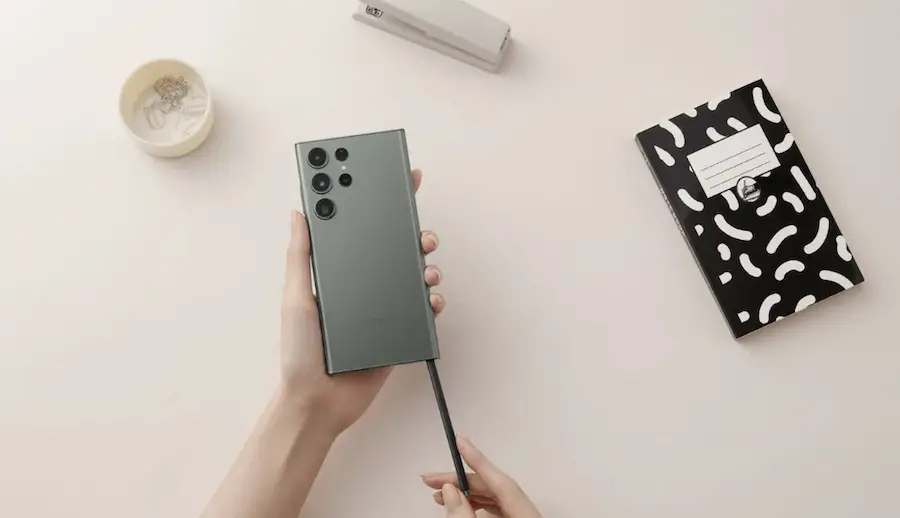In a bold move towards innovation, Samsung is lifting the curtain on its latest generative artificial intelligence model – Samsung Gauss.
This groundbreaking AI, demonstrated at Samsung’s recent AI forum, is set to become an integral part of the highly anticipated Galaxy S24, slated for an early 2024 release.

Let’s delve into the details of this cutting-edge technology that promises to reshape the landscape of on-device AI.
Gauss Unleashed: A Sneak Peek into its Capabilities
Samsung Gauss, a name paying homage to the legendary mathematician Carl Friedrich Gauss, has emerged as a versatile AI model.
During its showcase at the AI forum, Samsung provided insights into Gauss’s capabilities, showcasing its prowess in tasks ranging from image generation and editing to composing emails, summarizing documents, and even serving as a coding assistant.
The versatility displayed by Gauss positions it as a multifaceted tool for users seeking enhanced productivity and seamless interactions.
Gauss on Galaxy S24: Integration into Core Functions
One of the most exciting aspects of Samsung Gauss is its integration into the upcoming Galaxy S24. The model is designed to run locally on the device, aligning with Samsung’s strategic vision to embed generative AI into the core functions of mobile devices by 2024.
This move represents a significant step forward in providing users with on-device AI capabilities, reducing reliance on cloud-powered solutions.
The Components of Gauss: Language, Code, and Image
Breaking down the Gauss model, Samsung has identified three key components: Samsung Gauss Language, Samsung Gauss Code, and Samsung Gauss Image.
The Samsung Gauss Language, described as a generative language model, aims to streamline work processes by simplifying tasks like email composition, document summarization, and content translation.
This component alone holds the potential to redefine the way users interact with their devices, making tasks more efficient and user-friendly.
Gauss for Enhanced Productivity: A Look Inside the Model
In a press release, Samsung emphasized that Gauss is not merely a theoretical concept; it’s already in use internally for “employee productivity.” This underscores Samsung’s commitment to not only developing cutting-edge technology but also applying it to improve internal processes.

As Gauss is fine-tuned and tested in real-world scenarios, its seamless integration into various Samsung product applications is on the horizon, promising users a new and improved experience.
On-Device Processing: Redefining User Experiences
The decision to allow parts of Gauss to run locally on the device is strategic, aiming to redefine user experiences. By empowering the Galaxy S24 with on-device processing capabilities, Samsung seeks to provide users with faster and more responsive AI interactions.
This approach also addresses concerns related to data privacy, as sensitive information can be processed without the need for constant reliance on external servers.
Gauss in Action: A Key Selling Point for the Galaxy S24
The integration of Gauss into products like the Galaxy S24 could be a pivotal selling point for Samsung. If Gauss can run limited generative image and language models locally on the handset, it would represent a departure from the prevalent reliance on cloud-powered solutions.
This not only enhances the device’s performance but also underscores Samsung’s commitment to delivering state-of-the-art technology directly into the hands of users.
Potential Competitor to Cloud-Powered Solutions
As AI continues to play a central role in technological advancements, the competition between on-device processing and cloud-powered solutions intensifies.
Gauss, with its ability to perform certain tasks locally, challenges the status quo by offering a glimpse into a future where devices can leverage AI capabilities without being constantly tethered to the internet.
The Galaxy S24, with Gauss at its core, may well set a new standard for what users can expect from on-device AI.
Gauss and Bixby: Bridging the Gap with Generative AI
Samsung’s foray into generative AI isn’t limited to mobile devices alone. The company has already integrated generative AI into its Bixby virtual assistant for home appliances.
However, Samsung is quick to clarify that it won’t pursue a service as heavyweight as ChatGPT. Miyoung Yoo, vice president of Samsung Electronics’ home appliances division, stated, “When we think of generative AI, we often think of ChatGPT, but we are not aiming for such a heavy service.”
This strategic decision reflects Samsung’s focus on ensuring that generative AI aligns with the specific needs and capacities of its diverse product ecosystem.
Bixby’s Role in Natural Communication
Samsung envisions Bixby not as a heavyweight AI service but as a tool that understands contextual conversations, enabling more natural communication. By incorporating generative AI into Bixby, Samsung seeks to enhance user interactions with home appliances.
This approach aligns with the broader trend in AI development, where contextual understanding and natural language processing become integral components of user-friendly interfaces.
Gauss: A Stepping Stone to Future Applications
As Gauss is currently being used internally for “employee productivity,” Samsung’s plans to expand its application to various product categories hint at a future where generative AI becomes a standard feature across its diverse range of offerings.
The development and integration of Gauss into the Galaxy S24 are likely just the beginning, with Samsung poised to explore additional applications that leverage the power of on-device generative AI.
The Road Ahead: Gauss in Consumer Products
Samsung’s commitment to providing a “new user experience in the near future” suggests that Gauss will not remain confined to the Galaxy S24. The model’s potential applications in various consumer products open up possibilities for a more connected and intuitive technological landscape.
Whether it’s enhancing user interfaces, refining voice assistants, or transforming the way we interact with our devices, Gauss could be a catalyst for a wave of innovations in consumer electronics.
Gauss and the Future of On-Device AI
As Samsung Gauss takes center stage with its integration into the Galaxy S24, the tech giant is not just unveiling a new smartphone feature; it’s showcasing a vision for the future of on-device AI.
The strategic move towards locally processed generative AI, as demonstrated by Gauss, not only addresses current technological challenges but also sets the stage for a more efficient, responsive, and user-centric computing experience.
As Samsung continues to push the boundaries of innovation, Gauss stands as a testament to the company’s commitment to shaping the future of technology.
